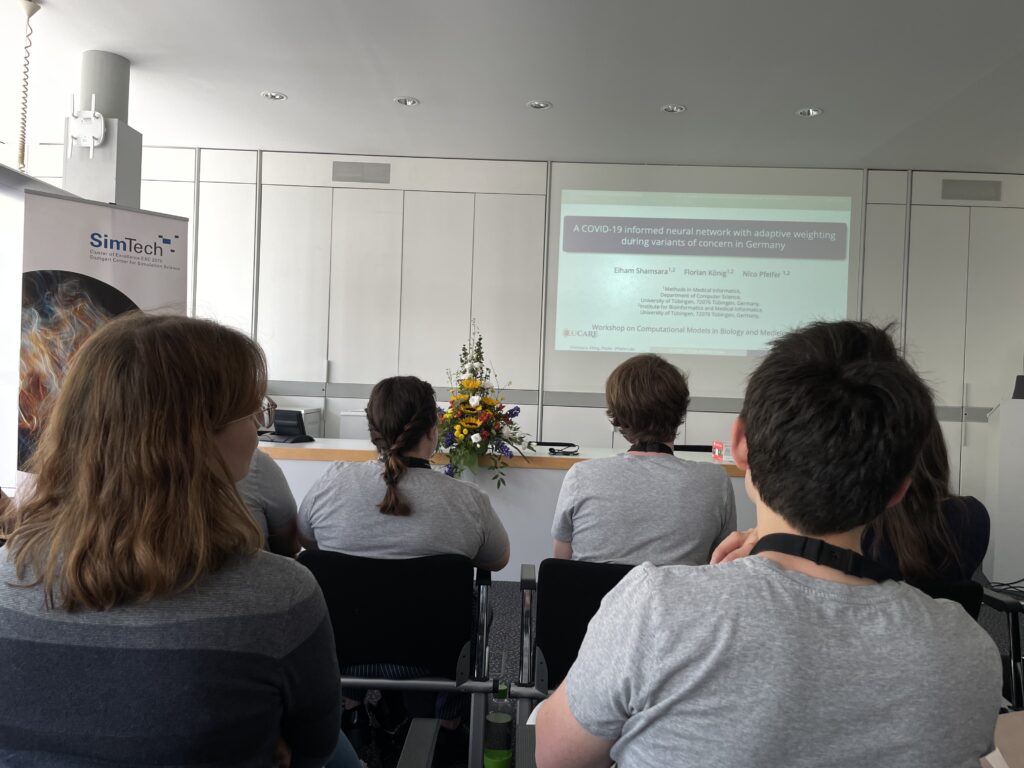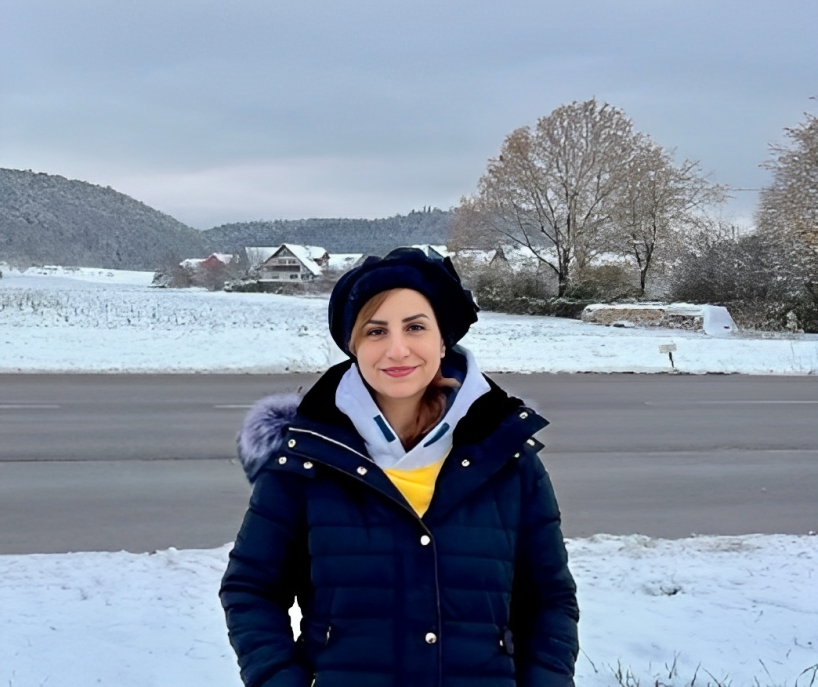Get to know more: A brief summary of the two oral presentations given by Elham Shamsara!
Nico Pfeifer, Elham Shamsara, and Florian König from the Eberhard Karls Universitaet Tuebingen (EKUT), attended the GMDS/IBS-DR joint workshop on Computational Models in Biology and Medicine 2023 in Stuttgart. Elham on June 16th presented their work entitled: “A COVID-19 informed neural network with adaptive weighting during variants of concern in Germany”.
Their approach of integrating governed physics into a fully connected neural network enabled them not only to estimate the multi-peak behavior observed in COVID-19 data in Germany during variants of concern but also to derive time-dependent rates such as the rate of infection, rate of hospitalization, and rate of unidentified cases. Additionally, their extendable model can serve as an effective tool for decision-makers to proactively address COVID-19 and other emerging infectious diseases.

The second oral presentation will occur on the 31st of July at the Statistical Computing 2023 conference in Günzburg, Germany. The presentation of Elham Shamsara, from EKUT(PfeiferLab) is entitled: “Assessing the Impact of Vaccination and Predicting the Emergence of the Omicron Variant: Modeling the Dynamics of COVID-19 in the Omicron wave”.
In November 2021, a novel variant of SARS-CoV-2, Omicron (B.1.1.529), was first identified in Botswana and South Africa, which has now spread on a global scale. The World Health Organization declared it a variant of concern (VOC) on November 26, 2021. Omicron has distinct characteristics and evolved into five lineages: BA.1, BA.2, BA.3, BA.4, and BA.5. In this study, they employed a compartmental model to investigate the impact of the Omicron variant and its lineages BA.1, BA.2, and BA.5 on populations. Their model aimed to address principal concerns surrounding the Omicron variant, including its transmissibility and severity compared to other VOCs and its ability to circumvent vaccine protection. The study investigates the effect of vaccination and immunity rates concerning the Omicron variant across various countries.

